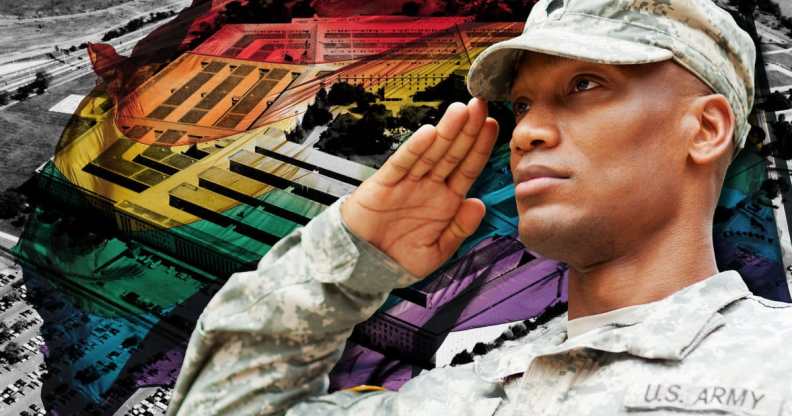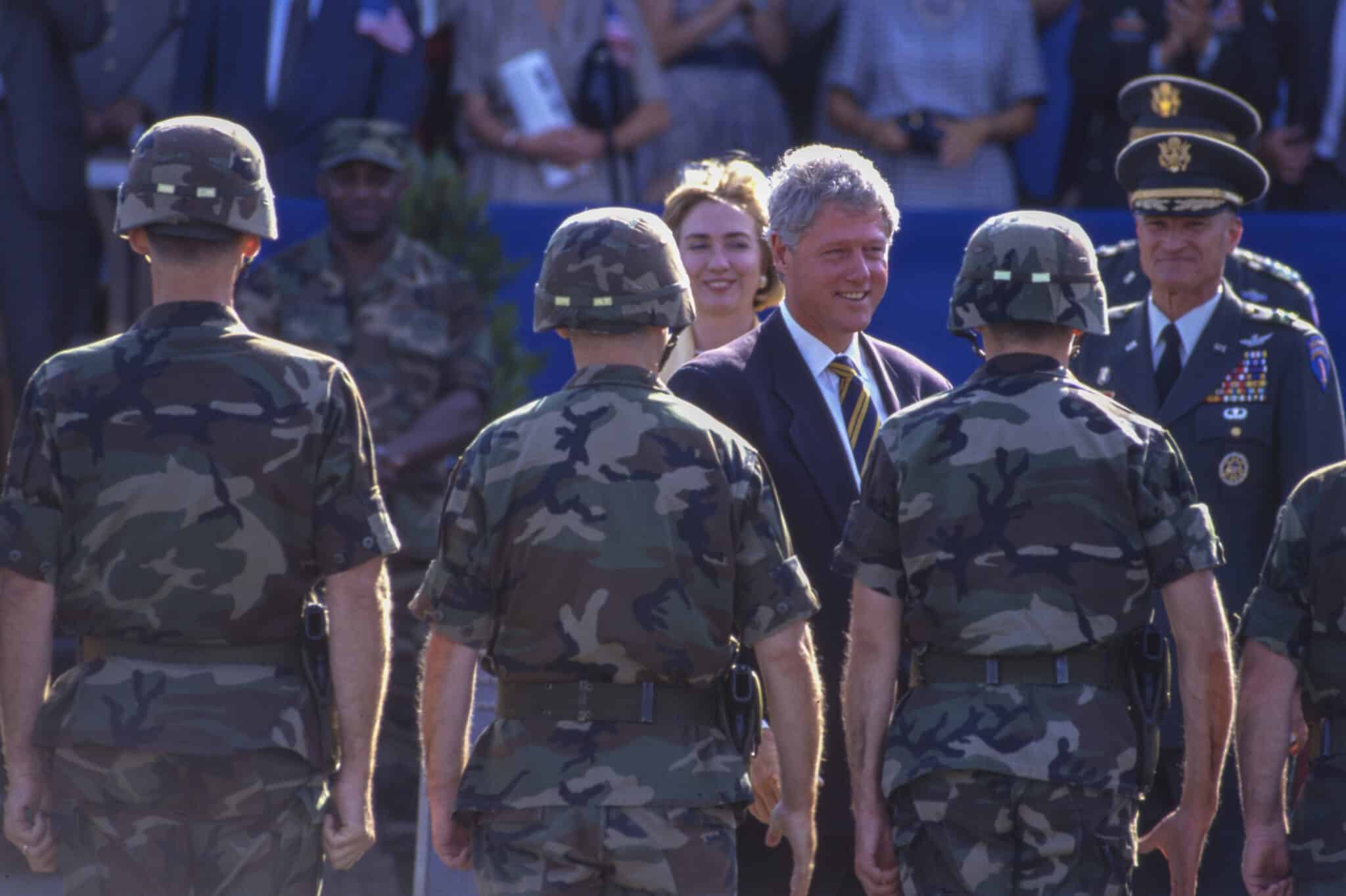Reviled LGBTQ+ military ban Don’t Ask, Don’t Tell was completely unnecessary, Pentagon finds

A report into the US army’s “Don’t Ask, Don’t Tell” policy has been unearthed, and it found Pentagon concerns about LGBTQ+ troops and their role in the military were vastly overblown.
The policy protected closeted LGBTQ+ members of the military but banned anyone openly queer from joining.
The Joint Chiefs of Staff have recently published a historical perspective report which found the highly controversial policy was not about combat effectiveness, but rather about homophobia.
The 2021 report was unearthed by the Palm Center – which studies US military policy in an effort to improve the conditions of LGBTQ+ troops – on 19 September.
“Time and again, opponents of equality have claimed that inclusion would harm America’s most important institutions and threaten the nation itself,” Palm Center director Aaron Belkin said in a statement after the discovery.
“And time and again, that’s turned out to be false.
“This official military study makes clear the yawning gap between fear-mongering and reality, and should guide dialogue about similar claims in the present.”

The “Don’t Ask, Don’t Tell” policy was signed by president Bill Clinton in 1994 as an incredibly skewed strategy to allow LGBTQ+ soldiers to remain in the military, as long as they were not open about their sexuality.
It was incredibly divisive and is estimated to have cost at least 14,000 US military personnel their jobs, though the actual number is believed to be a lot higher since many dishonourable discharges were done in private.
The Joint Chief of Staff’s study, which began in 2012, aimed to review the policy’s complex history and provide further reasons for then-president Barack Obama’s decision to repeal the law in 2010.
The conclusion of more than 160 pages from various documents and statistics on military readiness, was that the law was overblown and had “no impact on military readiness.”
It also detailed the history of discrimination against LGBTQ+ service members and how vitriol evolved into policy that would shape US military perception of queer community members.
This alienation of the LGBTQ+ community quickly diminished after troops entered combat zones with queer personnel according to the report.
“Individuals who had served with homosexuals in the past tended to be less pessimistic about serving with gay and lesbian personnel in the future than those who had not.
“Respondents deployed to combat zones had predicted that the impact of repeal would actually be less during intense situations than during downtimes at sea or in the field.”
Palm Center announced its closure a week later
Surprisingly, a week after the discovery, Palm Center officials announced it is shutting down the think tank on Friday (30 September).
The organisation saw 24 years of research and more than 65 studies, including pivotal reports during the repeal of DADT, seeking to protect LGBTQ+ troops from discrimination.
“Few organisations figured out how to move the needle on military opinion so effectively as the Palm Center,” Navy admiral Mike Mullen said.
“Its research and policy guidance was invaluable in showing that inclusive service was not complicated and would not harm readiness.”

